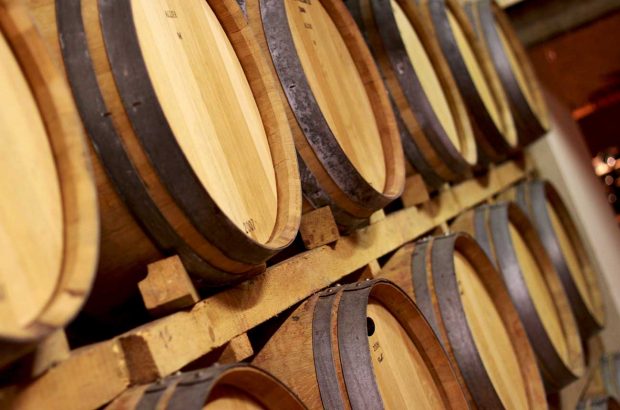See both sides of the debate as to whether wine drinkers can taste a tough year in the glass, as taken from the 'burning question' in Decanter's December 2013 issue....
Patchy flowering, freak summer hailstorms and rot-inducing rain and humidity during an already late harvest have raised the pressure on many French winemakers to pluck a 2013 vintage from the prospect of future obscurity.
The outlook is brighter for some regions and estates than others, and many producers are rightly sensitive to generalisations. However, it’s no secret that 2013 has been tough in many European vineyards.
In Bordeaux, ‘wines will be very variable’, said consultant Richard Bampfield MW, though he feels it’s still too early to assess quality fully. ‘Bordeaux hasn’t had a bad vintage in 20 years, but maybe this is our time,’ said Gavin Quinney, owner of Château Bauduc. ‘I’ve heard people comparing it to 2008, but they must be bonkers. It’s much trickier than that.’ Speculation is already growing that next spring’s Bordeaux en primeur campaign for 2013 could be another subdued affair.
Beyond the top tier the challenge is greater, as most smaller estates lack the equipment and resources that wealthier crus classés have at their disposal to deal with difficult weather conditions.
In Burgundy, there are similar fears, but some are calling for perspective. ‘It’s going to be variable but not a catastrophe,’ reassured Jasper Morris MW, Burgundy buyer for UK merchant Berry Bros & Rudd.
There is general concern in France about a strain on supplies. Stocks of French wine were at their lowest levels for at least 12 years following a historically small 2012 crop, according to national agency FranceAgriMer.
Ultimately, difficult years can mean making hard choices. Extreme recent examples include UK sparkling winemaker Nyetimber and Château d’Yquem in Sauternes giving up on the 2012 vintage.
Yet, in the 21st century, can wine drinkers really taste a tough year in the glass. And do they feel it in their wallets?
Yes
‘Generalisations are always dangerous,’ said Australia’s Michael Hill Smith MW. ‘But, yes, you can taste the shortcomings of a poor vintage, sometimes because of characters the wine has, sometimes the faults of omission.’
As an example, an extraordinarily hot 2008 in South Australia ‘meant some wines were sugar ripe but not flavour ripe due to the short ripening period’. This led to ‘elevated alcohol levels in many wines, without supporting flavour and length’.
In Bordeaux, Château Bauduc’s Gavin Quinney said, ‘You can definitely see a difference in lesser vintages. Of course consumers can taste the difference between a [poor] 2007 and a [good] 2005, 2009 or 2010.’
Even in non-vintage Champagne, a difficult year can make itself felt. ‘Cellar masters will obviously correct a base wine vintage with good reserve wines from previous years,’ said Champagne expert Michael Edwards. ‘But they are not magicians.’ He added, ‘Drinkers have been spoilt by base wines from the excellent 2008 and 2009 harvests. Expect a more austere base wine in the more problematic 2010 vintage.’
Charlie Young, director at London restaurant Vinoteca, said staff monitor vintage variation. A more ‘austere’ Alsace vintage in 2010, for instance, meant ‘we had to adjust the way we sell it’.
No
Some argue that the equipment available to modern-day winemakers has reduced the harm a tough vintage can do to quality. ‘With all the developments in viticulture and winemaking, it is not good enough to blame the weather for a bad wine anymore,’ said David Gleave MW, founder and managing director of UK importer Liberty Wines. ‘There may be differences in style and there may be less volume, but the quality should be there if the winemaking team has done its job.’
‘Since Liberty started, we have never had to take on a new producer because an existing producer was unable to supply sufficient volume in a poor vintage,’ Gleave added.
On price, Pierre Genest, deputy director general of French wine export body FEVS, said the pressure is often on exporters to ‘trim margins’.
At supermarkets, buyers’ bargaining power largely suppresses price rises. ‘I’m not convinced that the price on the shelf reflects a poor vintage,’ said Richard Bampfield MW. ‘There is huge pressure on retailers to keep prices as consistent as possible. Far larger considerations than a poor vintage are currency swings and tax changes.’
For many wines sold at this level, consistency means that ‘it’s a moot point as to whether a consumer really Michael Hill Smith MW needs to see a vintage on a label’, he said.
Written by Decanter





